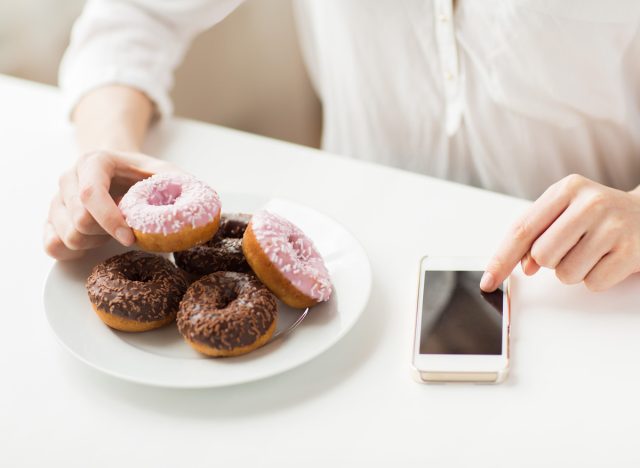Should You Track Your Calories? A Dietitian Weighs In

Some folks love counting calories, and others hate it. So how do you know if you should track your food?
Calorie trackers like MyFitnessPal have become incredibly popular in recent years. Now, many common diet programs like Noom and Weight Watchers incorporate food tracking into their approach as a result. In my practice as a dietitian, I’ve spoken to folks who report that tracking has been incredibly helpful for them, while others say tracking is too stressful and maybe even increases self-reported levels of disordered thought patterns around food.
But how do you know if you should personally track your calories? Let’s dive into the pros and cons of counting your calories, and what to do next if you decide it’s for you.
What are the potential benefits of calorie tracking?

Research from the Journal of the American Dietetics Association suggests that any form of self-monitoring, like food tracking, is helpful in maintaining your weight long-term. Self-monitoring includes tracking calories, stepping on the scale, or keeping logs of some form about diet and exercise habits.
When tracking their food for the first time, many people report increased levels of awareness about food, the ability to be more mindful, and more appropriate portion sizes. There’s something about the act of tracking that can help increase consistency and trigger the brain to be more aware of the choices you make.
Who should avoid tracking their calories?
While there are some benefits, there are instances where food tracking can be unhelpful or potentially harmful. In cases of people with eating disorders or people who fall on the spectrum of disordered eating behaviors, tracking your food may increase levels of stress and anxiety. The increase in stress around food can potentially increase food obsession and prevent your from healing your disordered behaviors in these instances.
RELATED: I Kept a Food Journal for a Month—and the Results Surprised Me
Ways to track your food
Tracking your food traditionally requires a food scale, measuring cups, and one of the nutrition-database apps like My Fitness Pal or Calorie Counter. However, these apps are the most detailed form of tracking and may pose the greatest risk for increased stress around food.
Other, lower-risk ways to track include using a pen and paper or taking pictures of your meals and snacks. Many people report that taking pictures offers a nice balance of accountability and consistency without an enormous emphasis on calories.
While picture-based tracking is less precise, it seems to offer similar benefits like increased self-awareness around food and improved mindfulness while eating, without being entirely numbers-focused.
You may need to find out which type of tracking works best for you through trial and error, and if you are wondering if you struggle with disordered eating, consider talking with an expert.








